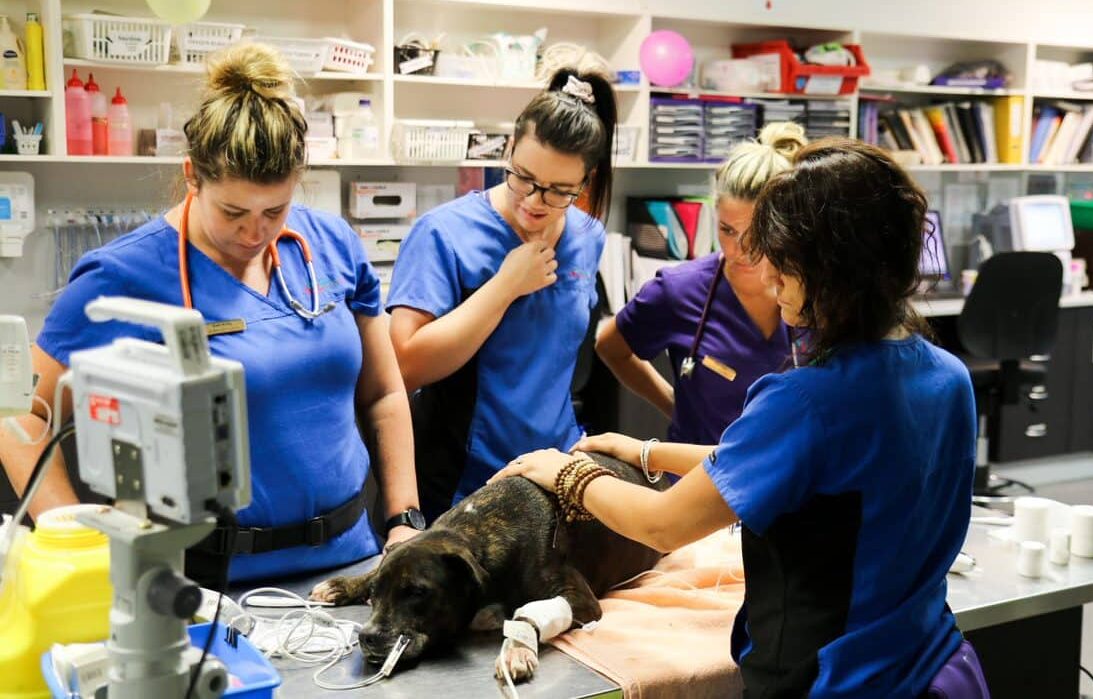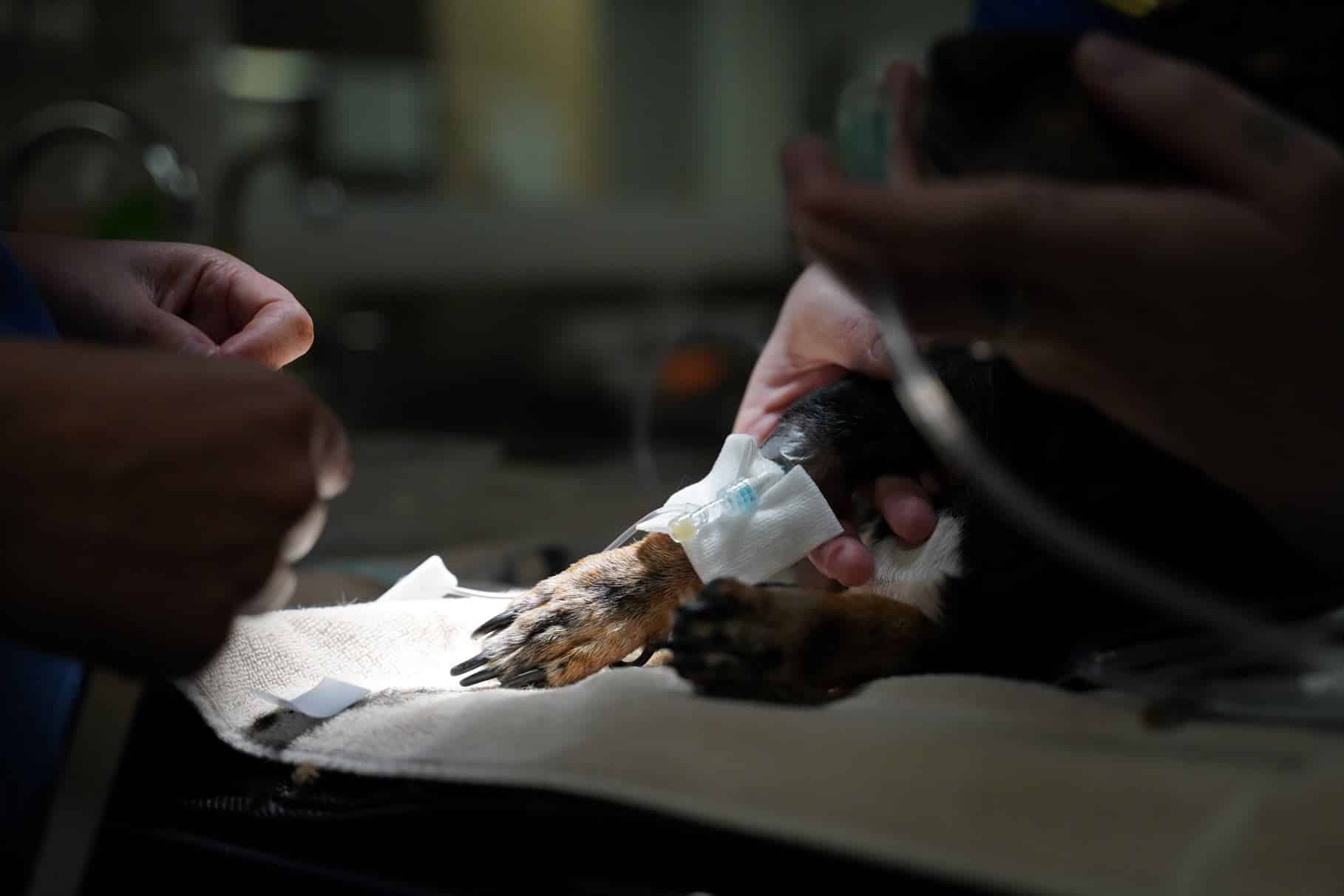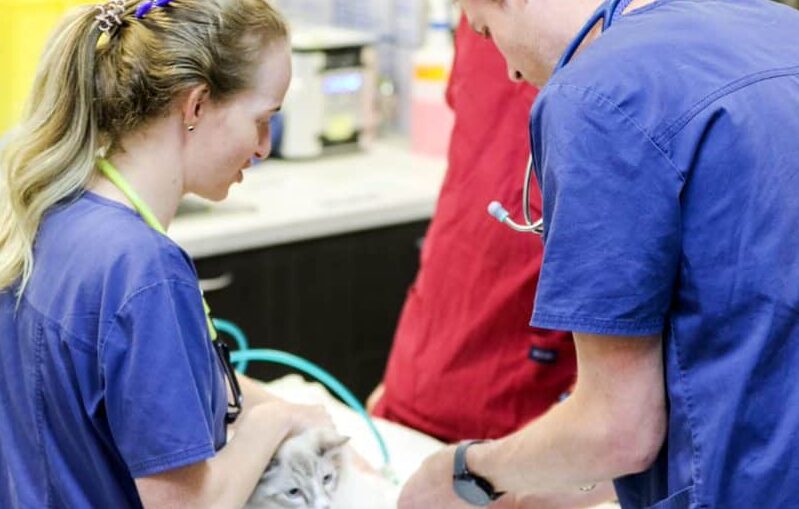Do you want to pursue a veterinary career in emergency and critical care? Wondering how to get your foot in the door? Veterinary emergency and critical care (ECC) is a fast-growing field with diverse opportunities. There are several pathways you can take from undergraduate school, veterinary technician, or emergency veterinarian assistant to emergency and critical care specialist. We’ll outline the steps for starting this exciting profession.
What is Animal Emergency and Critical Care?
Animal emergency and critical care is the specialty that deals with emergency treatment of life-threatening illnesses in animals. It also manages emergency medical problems, organises emergency transport for critically injured patients, provides initial evaluation and stabilisation of trauma cases, stabilises any chronic disease processes to prevent deterioration or death from complications before referral to a facility where long term management can be provided (e.g., intensive therapy).
Veterinary Career Pathways in Emergency and Critical Care
ECC specialists work in emergency clinics as well as specialty hospitals. They diagnose injuries or illnesses that require urgent treatment. ECC specialists also provide clinical support in hospitals for surgeries like brain surgery or orthopaedic procedures. You may be interested in this career if you enjoy working closely with people while providing emergency care for animals.
If you are interested, there are many avenues you can take to pursue emergency and critical care.
Veterinary Emergency Assistant
This is one of the most common pathways to ECC. It’s a position that requires emergency training as well as a veterinary technician certification from an approved college or university.
Emergency Veterinarian Assistant
To qualify for this role, you’ll need an Associate Degree in emergency and critical care technology (AVMA approved) and have completed study of emergency medical procedures which includes CPR, First Aid, AED use and manual defibrillation.

Emergency Veterinarian Technician
The emergency veterinarian technician is a licensed veterinary technician, so they have completed an AVMA approved college program.
Veterinary Emergency and Critical Care Specialist
Often emergency and critical care specialists have an emergency veterinary assistant or emergency veterinarian assistant background. To qualify, they must be a licensed Veterinary Technician (AVMA approved) with certification in emergency and critical care technology from AVMA accredited program.
Veterinary technicians interested in emergency work should take courses such as Advanced Animal Health Care Skills I & II and Basic Life Support Procedures through their veterinary tech program; they can then complete additional coursework at the undergraduate level or self-study via online learning programs such as those offered by XYZ.
In general, people looking into veterinary career pathways in emergency medicine must be committed to the emergency field, as could be challenging for a veterinarian to work in other areas and still maintain their emergency skills.
If you’re an animal lover and want to make a career out of it, then veterinary emergency care is the field for you. There are various pathways that will lead you into this specialty such as getting your undergraduate degree in ECC or working with animals daily while going through school to become a vet tech. Animals need caring people like yourself who can give them the best medical treatment available when they have emergencies so don’t wait any longer!
If you’re interested in a veterinary career, get in touch with Animal Emergency Australia today to learn more about the best pathway for your goals!




